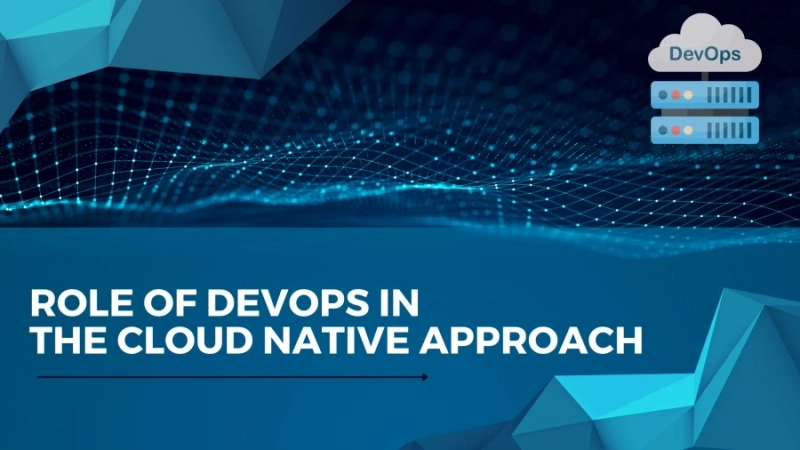DevOps, combining development and operations team processes to bring out the best possible result, can help in cloud native. DevOps services and solutions have always been extraordinary at bringing out the best in any organization's work parameters.
What is a Cloud Native Approach?
The term cloud native refers to building and running applications to take advantage of the distributed computing offered by the cloud delivery model. Cloud-native apps are designed and built to exploit the scale, elasticity, resiliency, and flexibility the cloud provides.
The cloud-native approach covers the concept of creating and running applications that utilize distributed computing offered by the cloud delivery model. With Cloud-native apps, you can be sure of flexibility, elasticity, resiliency, and other attributes that make it an apt choice. All these valuable features enable engineers to make meaningful changes by giving minimum effort. In short, cloud-native pushes more productivity within a team.
This blog lets us explore how a cloud-native approach can assist with DevOps.
Principles of Cloud Native Approach
OrchestrationCloud-native infrastructure and software look forward to orchestrating automated configurations, deliverables, updates, and management tasks. For those who do not know what orchestration is? Here is a simple definition- Orchestration is the automated management coordination of computer systems, applications, and services.
Continuous Delivery and Continuous Integration (CI/CD)Cloud-native software can be tested and delivered using CI and CD processes. With CI and CD, DevOps focuses on trouble-free integration and delivery.
Immutable InfrastructureThe cloud-native environment uses an immutable configuration in which servers cannot be modified if needed after deployment. It cannot be done if one wants to update, make changes, or even fix a minor issue.
MicroservicesWith Cloud native software development, one can divide applications into smaller granular pieces, making cloud-native apps more flexible than before.
What is Cloud Native DevOps?
Cloud-native and DevOps are bound to increase your organization's work efficiency. Every business deserves to get the maximum out of Cloud Native DevOps; if you are struggling to understand what goes behind cloud native DevOps- you can choose to go for DevOps services and solutions.
How Can You Implement Cloud Native DevOps?
You cannot implement native cloud DevOps by simply purchasing the system; you need an expert by your side to help and guide you throughout the process. Below are the three fundamental changes which are generally faced by an organization when dealing with a cloud-native approach.
Technical ChangesThese are meant to happen when a system is integrated into your organization's work structure. You need to begin migrating your existing onboard environment to a cloud-based one. Furthermore, one would be required to invest in tools for orchestration, CI/CD, and other cloud-native features.
Organizational ChangesThe following change would be, of course, organizational changes. Cloud-native DevOps stores need buy-in from everyone in the organization. From most senior to mid-senior to juniors. You would want cloud-native DevOps to focus only on collaboration which allows sharing feedback with everyone, thus resulting in good enough outcomes.
Cultural ChangeCloud-native requires the support of DevOps methodology when, on the other hand, DevOps demands a cultural shift in your organization. But in all this, both team collaboration stands at number one still. Everyone on the team must be committed to improving efficiency and breaking down silos that keep testers and developers from working together.
Without saying, we can tell that no organization might be unable to implement these changes overnight. It will need time and consistent efforts from every department, and only then can the desired results be achieved. At some point, you’ll have to ask this question- ensure to do research before switching to any system approach, as there is no going back then. Would you choose Cloud Native Approach? There are many successful DevOps services and solutions companies that can assist you, before hiring do a background check.


